Finally pried myself away from the plantation, and down at the bus stand in Ragalla, the only bus I could get to a town that my handy map told me was on the way was the "chicken bus," which the locals call the "common" bus, to a place called Badulla.
Riding with my bag on my lap putting my legs to sleep, I finally arrived in that town toward the end of the day, and, asking about buses to Potovil, I was told, or signed at, that it was "not possible," and so in my mind I used another famous Sri Lankan expression, "What to do?" which essentially means "ah, fuck it
. " There was a fine government run rest house near to the bus stand, well done and clean, so I thought it would be good to stay there and wake up early to catch the bus to Potovil, general consensus among the locals that the time for said bus's leaving was 6:30.
Checked in and on the hunt for food, I discovered a little mom-and-pop place and had my now favorite kottorotti, talked to a pharmacist with good english for a time, then off to bed.
I guess we're not in India anymore, everything falls into place easily in Sri Lanka, so no problem. Wake up and get on the bus. Or so I thought at the time.
Badulla being one of those towns that none of us whiteys ever gets off the bus in, all the signs at the bus stand were in Sinhalese, and unreadable, apparently even to the people that are supposed to be able to read it. At 6 in the morning, I went to wait for the mythical bus, as that is just what it turned out to be--mythical. The night before it was a real, though unseen bus; in the morning it became "not possible." After numerous attempts to get someone to read the schedule for me, of course without even limited success, the time passed 7:30
. Checking my handy map again, I went up to the first bus I saw, and rattled off the sequential list of towns on the way to Potovil. One of them caused a vaguely affirmative gesture from the bus "conductor," a spot by the name of Monaragala, about halfway there. What to do? Board that bus.
Four hours later I was there, in the heat of the day, and wonder of wonders, there were actually english subtitles under the sweeping Sinhalese script. Potovil was one of them. Saved! Of course the one man in the bus stand who had ten words of my language asked me "Potovil?" and I replied "Yes, Ohh, Aam." (the word 'yes' in english, sinha, and tamil.) The third prompted a little glint in the man's eye, so I asked him, in tamil, what was his name. . They love this, when you use their language, and Tamils, especially, when you use a bit of Tamil. They still speak their mother tongue, and the simple fact that you even recognize that they are Tamils makes them even happier. Even if you don't remember their names, which I can never seem to do, it means a lot to them
. A respect thing.
Waiting finally on the bus, looking out the window, and making primitive communication with my new friend, he suddenly tapped me on the shoulder and pointed outside. Sure enough, there was a westerner, headed for the bus. Hopping out for a quick smoke before the bus left, we began to talk.
Patrick had excellent english, though he is a printing press operator from sweden. We hit it off well right away. He is also a bit of an aging punk rocker, and was on the way to see a friend of his in Arugam Bay who used to play in his band years ago, fell in love with Sri Lanka, and a Sri Lankan woman, and now lived there. Upon reaching Arugam, we decided to be room mates to save cost, and found a little place with just one room, a diminutive older couple renting it. Two beds, a large room, and attached. . Family style, and inexpensive.
If one wants to poke around in a place, one can find good deals, and for a poor geto style traveler such as yours truly, this becomes a bit of an art, not to mention a necessity. Look for the hand-scrawled sign that says "rooms" or some such, go around the back, wading through the chickens and dogs, and generally you will find a serviceable, if not immaculate place to stay, on a budget, of course
. the more misspellings on the sign, the better, as a rule of thumb.
Patrick turned out to be a great roommate, and indeed, a good friend. We had pretty much the same interests in what to do, and he had been in this town before a few times, so knew the "ways" as it were. That night we went to his friend's house for a BBQ, and I strummed guitar, playing a couple of songs that the fellows knew, all to the shy glances of the children. Ate about half a chicken. Tom, the friend, is a jolly and cheery fellow, and the funny thing about him is that, though swedish like Patrick, he had spent a bit of time in Australia which had affected his accent so much that I could barely make out a trace of scandinavian, only the "roight mate" twang of Australia. A hell of a good barbecuer as well. He and his wife lost pretty much everything in the tsunami, but were lucky enough to be able to figure out ways to get started again. Tom does some business in Colombo, and, though it has been difficult for the three of them (they have a precocious little girl called Precious), they are in the process of building a high-quality guesthouse on the beach that will be ready by next season
. They should do well, but so many others were not so lucky, as I shall elaborate on a little later.
After some barbecue we headed off to a place called Siam, for some Three Coins drafts, and stayed late, getting into a bit of a pissing contest with some guys there from an NGO, building a new bridge and wide road through the town, which had just been inaugurated and dedicated that morning by the American ambassador, with much pomp and circumstance. I made the mistake of asking why there were so many people who still did not even have a roof, and yet there was a fancy new bridge. This spurred a barrage of somewhat defensive justifications on their part, but all in all we had a really good discussion on the politics of aid, and as we amicably parted ways in the late of the night, there were handshakes and laughs all round. They jumped into their truck, with "UN" painted all over it, with a big UN flag, and, stumble-drunk, drove away toward potovil.
Patrick, being an early riser like myself, was up at 8 in the morning, and on that day we rented bicycles, for the ride down to panama, some 18 km away
. One rides these machines slowly for a number of reasons. The road is one lane, if that, of lumpy tarmac, with thick sand on the shoulder, so if a speeding truck comes through and you have to get off the road, you run a high risk of a spill on the side of the road if you have a taste for speed. Of course, the bikes creak and make rattling noises, and only have one speed--slow. So for all this we set out, getting to the town just as there was a bombing up the road which stopped all vehicular traffic.
Being close to the full moon, many sri lankans were headed to this temple, a right turn from the town of panama and 10 km or so away when the bombing took place in it. Some number of people were killed, there was some shooting, and so we decided it might just be best to go to the beach instead. .
There is a reason that Panama is not as developed in the tourist industry as Arugam, and that is that the beach is a bit like the Gobi Desert, high winds, and strange rocks included. The sand is so hot that even one who has been developing good callouses in India for a number of months can be burned to blistering by it. The water is down a steeply inclined beach, dangerous to swim if not fatal, so there is no relief from the burning sun and exfoliating sandstorm of the "beach" above. Another factor is that there are only a couple of narrow paths to access the beach, and, even though one may have triangulated one's self with landmarks, one can easily lose the point of entry and end up wandering for some time down blind paths that end in thorny scrub before one finds one's way out
. Of course, I say "one" but I should just say "me," for that is exactly what happened to me. After about half an hour of burning my damn feet off and melting my cheap Indian sandals, I found a path out. Follow the broken Arrack* bottles. On the road again, I walked the half kilometer to the bikes, and we set out again, planning to go to Potovil for a fresh juice, but first to find a temple that Patrick had been to once years ago for a bucket shower from the well. After a couple of wrong turns, and riding through the bush on dirt tracks with men buzzing around on hondas with AK-47s waving in the air, we did find the place and had a cooldown.
The ride back to pottovil was a bit faster than the way down, as this time the gale-force wind was at our backs. We made good time, and, being that the juice man was nowhere to be found, we had to settle on a couple of cold cokes to provide enough ready energy for the long and tired mile or so back to the bay.
Pottovil is a bit strange. I am told that there is some inbreeding there, and I am prone to believe that
. Though most of the people there look like perfectly normal sinhalese and tamils and muslims, there does seem to be more than a proportionate share of half-wits, some with big swollen heads, crossed eyes, and the dull and lifeless look in their eyes of a person who is, shall we say, a violin short of a symphony. Or maybe a whole string section.
One of them latched on to us, following us for no apparent reason, his slack jaw and vacuous gaze intruding into the refreshment break. We paid, and another mouth-breather with a decidedly Neanderthalish brow ridge and hydrocephalic looking head followed me out, requesting 20 rupees for the soda, though he had been there as I paid the man in charge, who must have been his father. Perhaps father is also uncle, or even brother, or something.
Anyway, as we boarded our ships for the ride back, more of these creatures seemed to be lurching toward us, kind of made me feel as though I were in some B-movie made by George Romero, or John Carpenter, or something. Time to make an escape. At least out of that town, which puts tiny West Virginia farming villages to shame if you count up score by the amount of identical DNA that is shared by the population
. Someone has been peeing in that gene pool. With the sun going down, I really did not want to see what came out at night--Perhaps nothing, but just maybe, under cover of darkness, they let out the really deformed ones. . . . muwhahahaha. . . .
Tired as hell after a long day, we found a nice little place on the beach just down from our guesthouse called (misspelled) the "Hillton," and enjoyed good food. The place was full of fellow travellers, and did indeed prove to be "that place," the one you find in a town that becomes your honorary "local" and that you spend all your time and meals in. . No problem sleeping that night. On the morrow we were to rent surfboards (cheap as hell, no demand) and attempt to learn to surf, really the only thing that anyone (who is not building some high-tech and probably unuseable structure around here for an NGO) does in Arugam Bay--it is famous for it's easy rolling surf, and ideal to learn at, as most others are doing the same, so there is lots of free advice as well. .
Selecting a surfboard for a beginner is easy--just get the biggest one you can find
. There are a number of sizes and shapes, rounded and pointed, upturned or straighter, and other combinations. It is good to have a fresh waxing every day, and to be careful not to get too much sand in the wax, as it will abrade your skin off on the chest and stomach. "Board rash" takes some time to heal, as once started, you need to be in salt water for most of every day in spite of the pain, if you are to get anywhere.
On day one, just learning to stay on the board is task enough. If you are lucky, you might begin to paddle decently as well. It looks like the easiest thing to do in the world, but with the funny balance, combined with the strange muscle groups used in the paddling, it takes most people some number of days before they even attempt to catch a wave. Of course, if you can read the breaks, you can sit in one spot, paddle a couple of times, and be off withough too much effort, but what you do once going is usually to attempt to stand, fall, and be tumbled in the "washing machine," all the while staying underwater until you know where your board is, to preclude nasty and sometimes dangerous blows to the head by a 9 foot piece of foam an fiberglass
. . .
Day one. Learning to paddle. Day 2. Learning to float and sit. Get a nasty coral cut. Be petrified of big waves. Sore and tired, see day 1...
Day three we took a rickshaw down to the end of the road in the next town, and walked 20 minutes down a gusty beach to Crocodile Rock, a sparsely populated spot with great views from the top of the rock, and a gentle curve to the small bay, creating the possiblity of easy and long rides for novices.
Day 3: Stand-up day!!! Having studied breaks for a couple of days, I managed to catch some good waves, and even to stand up on the board for about 2 seconds. Then again, and again. What I had been becoming a little frustrated with now became an (at least temporary) obsession.
Patrick had to fly back after day 4, so I managed to find other buddies with whom to go with. Indy, Bud, and Sarah, the canadians were quite a good bunch, and Elena and Enrico, with whom I hung out with also quite a bit were a lovely couple from Italia. There are so many more people with whom I bonded there, many doing great work in education and housing there in tsunami-stricken sri lanka, and I could go into great detail about them and the time we shared, but alas, dear reader, my metacarpals are beginning to get a bit sore as I type these many words, and so the stories of the wonderful crew that formed in those days at Arugam shall have to wait, perhaps coming out in a one-upping pissing contest down at the Galway house, or something
. There was an awesome bunch of Basques, a number of Italians and Spanish, a couple of english, french, and two mysterious swiss girls who didn't talk to anyone.
Also there were a few Americans there, people working in a school not far away. One, Julie, was a strong woman who rode up on a motorcycle one morning, and proceeded to drink beer. . She has been all round, as of recent living in Alaska, and has some stories to tell, that is sure. She is working on a degree from a school in Vermont, the School of International relations or some such, and putting together a school in Panama with her friends and associates Kim and Liz, who happens to be from Willimantic, an over-the-hill mill town in connecticut which some may know I have no small bit of history with. Interesting people, to a man (and woman), and it really was nice to be there with them, these are the "good" westerners for the most part, and a solo traveller learns much from such people. Thanks for being, all of you.
So, now I can say to hell with all those nice people's stories and get back to the surfing, and how I got out of Sri Lanka
.
For those of you that live in a bubble, Sri Lanka has an ugly little war going on. To get to the east coast, one has to pass numerous checkpoints at which soldiers wait, checking the papers and credentials of Tamils who pass. Westerners and Sinhalese get to wait on the bus as they do this, and the whole thing seems a little discriminatory, as the vast majority of the tamils just want to go about their lives, with no trouble from the LTTE, or the government forces. When they are allowed to do so, such as in a town like pottovil or panama, things are just fine. Muslims, sinha, and tamil, all live in peace.
The muslims often are caught in the crossfire. Contrary to what the western media might imply, muslims, for the most part, I have found to be extremely tolerant, peaceful, and hospitable people, who like any other group with a common thread, like to be left to live their lives without conflict and provide for their families, and, indeed, they also do much for the communities in which they live, regardless of the "race" or religion of their neighbors
.
Such an incident happened not far to the north in Trincomalee, while I was spending my days in Arugam. The government forces and LTTE clashed, and apparently the government forces were responsible, whether directly or indirectly for the killing of 20 and change muslim people, who are not involved in the conflict. This prompted a silent protest by muslims all over the island, a one-day strike that virtually stopped all business and transport in my area for 24 hours. Even Raheem, the owner of the Hillton, was conspicuously absent that day. A powerful statement by the people, but, one fears, nothing will be powerful enough to bring the two political sides to their senses. Political groups, like individual people, throw up brick walls when it comes to argument, and anger cannot see reason, so the best that the man on the street can do is to hope for the best, and help where he can. Consider the mechanics of interpersonal argument, and apply this to government and groups, and, in my humble opinion, you can get a real sense of international relations
. Of course there are many complicated issues, but once negotiation and communication breaks down, and argument turns to anger, the mechanics are the same. Except much more dangerous for innocent people caught in the middle of it.
Most war is pretty stupid, I think.
First the tsunami, and now the ongoing conflict, but the people here generally remain smiling. That is true strength. What to do.
As far as the relief effort goes, I gathered plenty of information on that as well from the people providing it, to the villagers who need it (and often don't get it). Case in point--about a month after the wave decimated the bay, truckloads of boats began to arrive. Thousands, printed with "rotary club" or "Anytown, Denmark," or such credits to the groups that donated them. There were four boats for every person, I am told. A month after that, three out of four of the same boats went out of town on the same trucks, to be sold that people might have something toward actually having a residence
. Or maybe a motor for the one remaining boat, as those necessary little items were over looked in the rush to ship as many boats as possible all at once.
I met many who lost families, friends, children, husbands, wives. Many have a little piece of land on the beach where used to stand a bungalow, restaurant, or guesthouse, and which they are trying to sell at cost, so that they may buy a little plot of land in the cheaper inland areas to build a tiny house. One might think there would be a market for such land from westerners desirous of getting away from it all and running a small restaurant/guesthouse in such a lovely location, but such is not the case. The tourists have just not returned in any numbers due, I think more to the "troubles" than fear of gigantic swells of the sea.
For anyone who wishes to help, there are blocks there as well. One cannot just go there with their own money, help a family to build a house, and go. In fact, one is not allowed to even work for free to help people. All must be administered to, first by the Sri Lankan government, in whose reasonably corrupt halls much money is pocketed, and then by the NGO's, most of which, it would seem to me, are sadly clueless, and removed from the daily life and needs of the very people they hope to help
. There are many schools which stand empty, as the Tigers will and have bombed them, the housing is built cookie-cutter fashion, usually far from the original homes of the people that live there, and the only thing they can choose is the color, if they have the money for paint. Resembles some kind of semi-urban project, the only thing missing is the crack.
People who really have a finger on the pulse of the locals are blocked every step of the way by the ponderous and sometimes corrupt beauraucracy, which tells them where to go and what to do from some remote location, perhaps germany, or colombo.
Further, with the conflict never-ending and unsolveable, it would seem, the central government, I should think wants to have a stronghold out here in the majority tamil and ethnically mixed east. Part of this may be to build communications and engineering structures that are impressive and attractive to package-tourist hotel corporations, but virtually useless to the poor man who has lost everything, including wife and children, who just wants a place to call his own
. In his own village. With what remains of his neighbors.
Places like Panama, which is surrounded by a protective high wall of dune, and which were virtually unaffected by the tsunami get brand-spanking new buildings, while in Arugam and many other villages, some wiped completely off the map by the tragic wall of water, many still live in tents, and sometimes go hungry.
It is hard to say who would be at fault here, certainly not the people on the ground working for aid organizations. Probably excessive bureaucracracy on the part of the NGO's, and the intrinsic corruption of the Sri Lankan government in the heavily populated west are most to blame. Probably a lot of blame also lies with the nearly universally despised LTTE, who just sneak around and fuck things up when all anyone wants is to live in peace. An extremely tangled web has been woven in this pretty place, and one can have some hope that some of the knots will loosen at some point so that those who have suffered, and continue to suffer so much tragedy will be able to get on with their lives
. "What to do," they would say, with a genuine but bittersweet smile.
Reminded me of the famous scene in Apocalypse Now, when they are surfing in a war zone. "Charlie don't surf, sir!"
I would hate to see these enterprising (and sometimes a bit cheeky) people be forced to do dishes and laundry in 5 star pasty package-tour hotels that stand where their little mom-and-pop restaurants and cabanas once stood. They even tried to build a mooring for the fishing boats some 4 kilometers away and make the fishermen clear the beach of these "unsightly" things, but the people weren't having it, they just flat out refused. I guess gentrification even touches the far reaches of the globe sometimes. Good luck and Godspeed, Arugam.
On the day after the strike, the buses ran again, and setting out with another newfound friend, a man made of stone with the fitting name of Bruno, toward Ratnapura. Bruno was going south toward Galle, to other beaches, so we traveled together to Monaragalla
. We had been drinking buddies for a couple of days, and had struck up a genuine friendship. He's a funny guy, and we nearly had a misadventure. .
Stopping the bus at the same place as we had had a "tea break" on the way into potovil, everyone got off, presumably for same. Bruno and I got off the bus and went into the little restaurant for a quick coke and a cigarette. As I paid for my coke, I looked out and the bus was gone!! Running out into the street, I saw the tail of it disappear around the corner, with our bags on it. Bruno had carried his essentials off, but had left his bag of fruit and food on it. . Hurry!! As he was still paying, I quickly hailed a rickshaw, and we hopped into it like John Darby at the Temple of the Tooth. (see my favorite travelers). We caught up to the bus, the driver had parked and waited when he realized we still had stuff on it, and took us down to a spot where we could catch the continuing bus to Monaragalla. Apparently what they told us, that this was the direct bus was not true, and we had to catch another
. At least we had our gear all together still. Note to self: Watch the bus at all times. .
Though we went on our merry ways in Monaragalla, Bruno's company sends him sometimes from Slovakia to Franklin MA, a town just 40 minutes away from Boston. I think that I will probably get a knock on the door after not too much time has passed, and my old travelling buddy will be standing there. .
Arriving in Ratnapura after spending all day on the bus, I was pointed, little by little toward "guest house. ." Up winding roads, up in altitude, finally lighting up a sign with my flashlight, I found the aptly named "rest house road," and again finding a good room for a reasonable, (though slightly more expensive than arugam)room, I settled in, venturing out for Kottoroti, this time with a ton of chillies, as the men in the stall had figured out that I liked it spicy. Burns more on the way out, I can tell you. . .
Ratnapura is slightly ratty, as the name might imply, but this being the wet season, perhaps it would be better named "Wet-nap-ura," as the air was about 150% humidity, and the sweat just pours off a man. Needless to say, my little travel umbrella came in very handy.
I visited the slightly ramshackle National Museum, saw the two-headed snake there, along with many other curious and sometimes frightening things in formaldehyde, looked at tons of gemstones, both raw and cut, none of which I coud buy, and generally had a relaxed day. The next day would see me on a bus to Colombo, a bus to Negombo, a rickshaw to the airport, planes to singapore and finally to bangkok, and, after over 24 hours without any real sleep, a long night in Bangkok, which you will read about shortly, if you so care to turn the page to the next entry. . . .
* "Arrack" is a liquor in Sri Lanka, made from coconut juice, fermented and distilled to about 70 proof, and drunk profusely by the men, generally in stalls for that purpose outside the wine shops. There are many kinds and colors, but I find that the darker stuff has a little more character. It is fairly clean, and produces no severe hangover as one might expect from the local hooch.
From tea to Tamil Tigers.
Tuesday, August 22, 2006
 Arugam bay, Potovil, Sri Lanka
Arugam bay, Potovil, Sri Lanka
Other Entries
-
57Seeking Sikhs, and Monsoon Driving.
Jun 0380 days prior Ambala, Indiaphoto_camera5videocam 0comment 0
Ambala, Indiaphoto_camera5videocam 0comment 0 -
58On mindfulness.
Jun 0677 days prior Pathankot, Indiaphoto_camera7videocam 0comment 2
Pathankot, Indiaphoto_camera7videocam 0comment 2 -
59Hello, Dalai. . .
Jun 1073 days prior Dharamshala, Indiaphoto_camera9videocam 0comment 0
Dharamshala, Indiaphoto_camera9videocam 0comment 0 -
60Dharamshala, the story, the life. .
Jun 1172 days prior Dharamsala, Indiaphoto_camera4videocam 0comment 0
Dharamsala, Indiaphoto_camera4videocam 0comment 0 -
61Stuck again. . .sort of. .
Jun 1766 days prior Dharamshala (Mcleodganj), Indiaphoto_camera3videocam 0comment 0
Dharamshala (Mcleodganj), Indiaphoto_camera3videocam 0comment 0 -
62Papa's got a brand new bag. .
Jun 2162 days prior Manali, Indiaphoto_camera5videocam 0comment 0
Manali, Indiaphoto_camera5videocam 0comment 0 -
63More time in Manali
Jun 2558 days prior Manali, Himachal Pradesh, Indiaphoto_camera5videocam 0comment 1
Manali, Himachal Pradesh, Indiaphoto_camera5videocam 0comment 1 -
64Rhotang pass.
Jun 2954 days prior Somewhere above Manali, Indiaphoto_camera7videocam 0comment 0
Somewhere above Manali, Indiaphoto_camera7videocam 0comment 0 -
65Declaring Independence. .(an essay)
Jul 0548 days prior Manali, Indiaphoto_camera4videocam 0comment 1
Manali, Indiaphoto_camera4videocam 0comment 1 -
66Dubious Anniversary, and a good ride.
Jul 0845 days prior Manali, Indiaphoto_camera6videocam 0comment 0
Manali, Indiaphoto_camera6videocam 0comment 0 -
67The path of the mountain mystic.
Jul 1142 days prior Manali, Indiaphoto_camera3videocam 0comment 1
Manali, Indiaphoto_camera3videocam 0comment 1 -
68Mostly in Photos. .
Jul 1934 days prior Keylong, Indiaphoto_camera64videocam 3comment 0
Keylong, Indiaphoto_camera64videocam 3comment 0 -
69Keylong, The Leh curse. Crash!
Jul 2528 days prior Manali, Indiaphoto_camera3videocam 0comment 0
Manali, Indiaphoto_camera3videocam 0comment 0 -
70Leaving India, Delhi, and beyond. .
Jul 3023 days prior Chennai, Indiaphoto_camera21videocam 0comment 0
Chennai, Indiaphoto_camera21videocam 0comment 0 -
71Out Of India!
Aug 0121 days prior Colombo,, Sri Lankaphoto_camera5videocam 0comment 1
Colombo,, Sri Lankaphoto_camera5videocam 0comment 1 -
72Plantations.
Aug 0418 days prior Ragalla., Sri Lankaphoto_camera19videocam 0comment 0
Ragalla., Sri Lankaphoto_camera19videocam 0comment 0 -
73Climbing the cliffs. . .
Aug 0517 days prior Ragalla, Sri Lankaphoto_camera23videocam 0comment 0
Ragalla, Sri Lankaphoto_camera23videocam 0comment 0 -
74From tea to Tamil Tigers.
Aug 22 Arugam bay, Potovil, Sri Lankaphoto_camera26videocam 0comment 0
Arugam bay, Potovil, Sri Lankaphoto_camera26videocam 0comment 0 -
75One night in Bangkok. .
Aug 22later that day Bangkok, Thailandphoto_camera8videocam 0comment 1
Bangkok, Thailandphoto_camera8videocam 0comment 1 -
76Bored and eating scorpions. .
Aug 297 days later Bangkok, Thailandphoto_camera14videocam 0comment 0
Bangkok, Thailandphoto_camera14videocam 0comment 0 -
77Same day, Different shit. .
Sep 0211 days later Malaysian and Singaporean Borders, Malaysiaphoto_camera0videocam 0comment 0
Malaysian and Singaporean Borders, Malaysiaphoto_camera0videocam 0comment 0 -
78Bus journeys. .
Sep 0211 days later Surat Thani. ., Thailandphoto_camera0videocam 0comment 0
Surat Thani. ., Thailandphoto_camera0videocam 0comment 0 -
79Sanitary Singapore
Sep 0514 days later Singapore, Singaporephoto_camera20videocam 0comment 0
Singapore, Singaporephoto_camera20videocam 0comment 0 -
80Landing down under.
Sep 0514 days later Sydney, Australiaphoto_camera18videocam 0comment 1
Sydney, Australiaphoto_camera18videocam 0comment 1 -
81Kiwiland at last!!
Sep 2130 days later Christchurch, south island. ., New Zealandphoto_camera3videocam 0comment 0
Christchurch, south island. ., New Zealandphoto_camera3videocam 0comment 0 -
82Northward Ho!
Sep 2231 days later Blenheim, New Zealandphoto_camera10videocam 0comment 1
Blenheim, New Zealandphoto_camera10videocam 0comment 1 -
83Goodbye South island
Sep 2433 days later Picton, New Zealandphoto_camera5videocam 0comment 0
Picton, New Zealandphoto_camera5videocam 0comment 0 -
84Whistle stop
Sep 2433 days later Wellington, New Zealandphoto_camera0videocam 0comment 0
Wellington, New Zealandphoto_camera0videocam 0comment 0 -
85High speed travel.
Sep 2534 days later Hamilton, New Zealandphoto_camera0videocam 0comment 0
Hamilton, New Zealandphoto_camera0videocam 0comment 0 -
86Busking and flying.
Sep 2635 days later Aukland, New Zealandphoto_camera5videocam 0comment 0
Aukland, New Zealandphoto_camera5videocam 0comment 0 -
87Kava!
Sep 2837 days later Nadi, Fijiphoto_camera2videocam 0comment 0
Nadi, Fijiphoto_camera2videocam 0comment 0 -
88Suva! Bula!
Sep 2938 days later Suva, Fijiphoto_camera10videocam 0comment 1
Suva, Fijiphoto_camera10videocam 0comment 1 -
89A day gained, a day lost. The long flight home.
Nov 30100 days later Boston, United Statesphoto_camera4videocam 0comment 0
Boston, United Statesphoto_camera4videocam 0comment 0 -
90Can you come home again?
Feb 20182 days later Boston, United Statesphoto_camera24videocam 0comment 0
Boston, United Statesphoto_camera24videocam 0comment 0

 Arugam bay, Potovil, Sri Lanka
Arugam bay, Potovil, Sri Lanka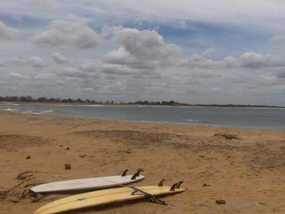
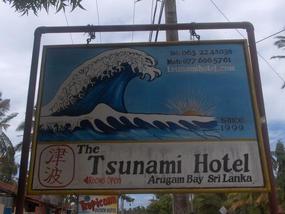
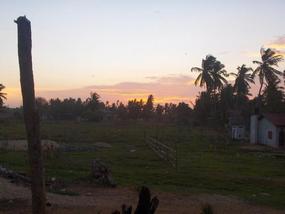
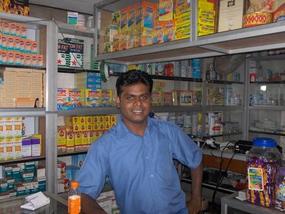
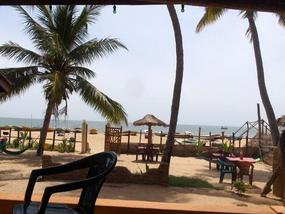
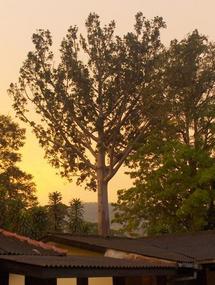
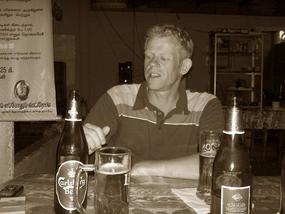
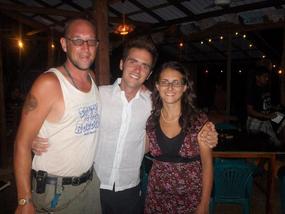
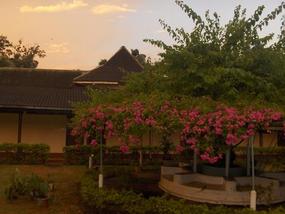
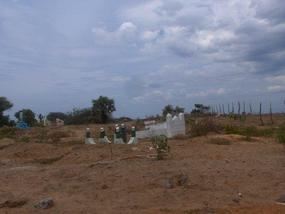
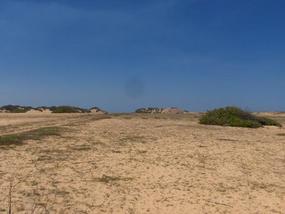
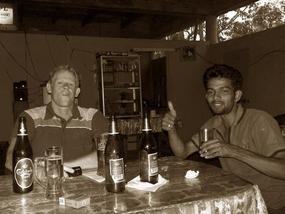
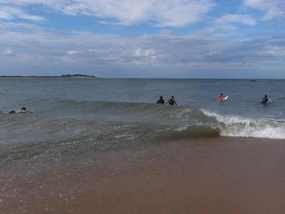
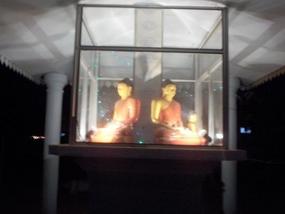
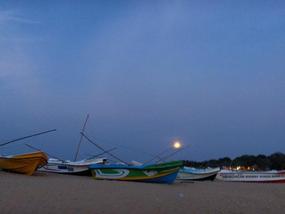
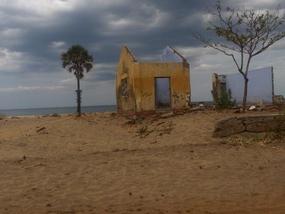
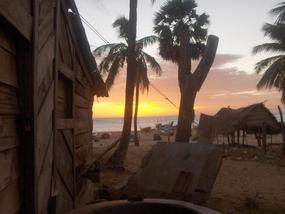
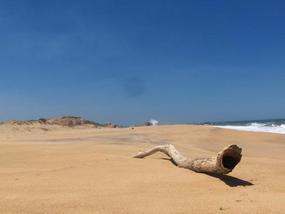
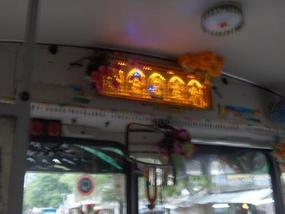
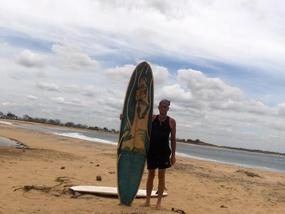
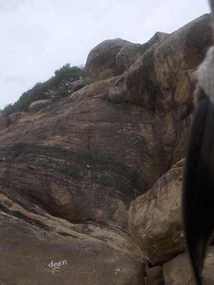









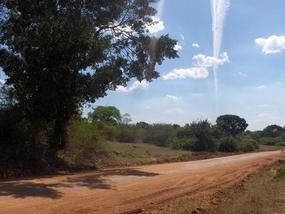
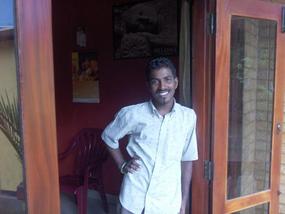

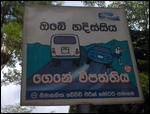
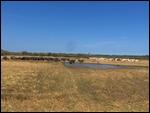
2025-05-22